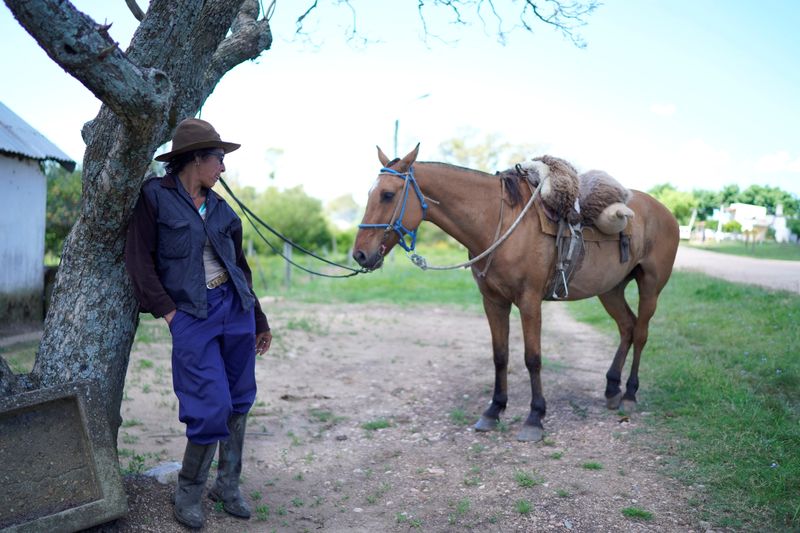By Lucinda Elliott
MONTEVIDEO/TREINTA Y TRES (Reuters) -Voters in Uruguay, identified for its seashores, legalized marijuana and stability, went to the polls on Sunday in an election race between moderates that contrasted with the polarized politics in lots of different Latin American nations.
The nation of three.4 million was voting for its subsequent president and lawmakers, with pollsters predicting a run-off will possible be wanted in November. The nation may also determine on a referendum on pension reform that might decrease the retirement age by 5 years to 60 and one other that might enhance police powers to struggle drug-related crime.
However in contrast to sharp right-left divides in Argentina, Brazil or Mexico, Uruguay’s political enviornment is comparatively tension-free, with vital overlap between the most important conservative and liberal coalitions taking a number of the sting out of the outcome.
The vote within the small South American nation noticed Broad Entrance center-left candidate Yamandu Orsi, the pre-election favourite, tackle continuity contender Alvaro Delgado. Behind them was younger, social media savvy conservative Andres Ojeda, who addressed reporters outdoors his native health club on election day.
Maria Gonzalez, 61, was voting for the Broad Entrance as a result of she stated individuals have been in “tremendous need” and that the present authorities had failed to deal with points associated to housing, training and healthcare.
Polls confirmed Orsi within the lead, however indicated no presidential candidate would possible get greater than 50% of the vote, that means a second spherical run-off could be held on Nov. 24 between Sunday’s prime two finishers.
Orsi stated the Broad Entrance had arrived on the election “with more strength,” addressing journalists on Sunday morning at a polling station. “I’m from the neighborhood, I’m from this city and I feel increasingly proud to be Uruguayan.”
In Treinta y Tres, a rural area of japanese Uruguay that has historically voted conservative, 60-year-old farm employee Ramon Silveira was casting his poll for Delgado. “I want the trend of the last five years to continue,” he stated.
Whereas safety was an space the ruling coalition might enhance on, Silveira was assured that with extra time in authorities, crime charges would come down.
Poll stations opened at 8 a.m. (1100 GMT) and shut at 7:30 p.m. native time, with outcomes anticipated two hours later.
There was larger pressure in two binding plebiscites, additionally on Sunday. One requested whether or not to overtake Uruguay’s $22.5 billion personal pension system, which has drawn criticism from politicians throughout the aisle who say it might harm the economic system.
Laura Mesa, a 35-year-old cook dinner was in favor: “We work all our lives. The retirement age should be shorter so we can enjoy it!” she stated from a polling station in Treinta y Tres.
Jesus Collazo, 23, was much less satisfied by the reform proposal: “I agree with some aspects like lowering the retirement age, but I keep thinking: What are they going to do to replace all this private pension money? Will they make us pay taxes?”
Uruguayans may also vote on whether or not to take away constitutional curbs on nighttime police raids concentrating on personal houses as a option to fight drug-related crime, a rising concern for voters. Each referendums require easy majorities to move.
“We must take control of our safety,” Orsi instructed a marketing campaign rally this week, pledging to be powerful on crime.

The ruling conservative coalition is struggling to defend its safety document, however hopes successes on the economic system – with each employment and actual salaries now on the rise – could also be sufficient to persuade voters to decide on continuity over change.
“I’m convinced that all the work we’ve done and what we represent is going to turn out well,” Delgado stated as polls opened on Sunday.




